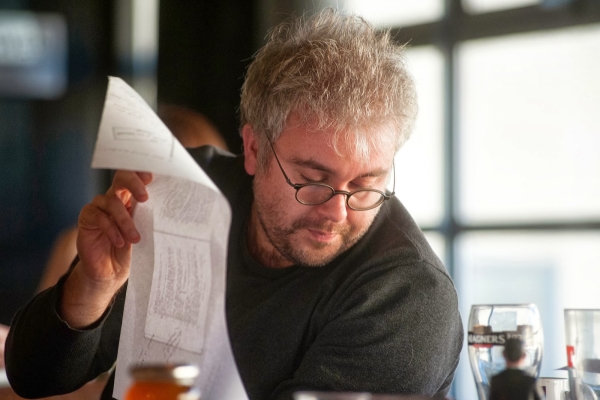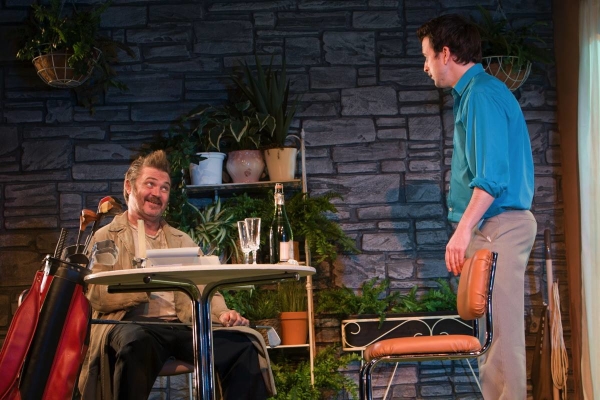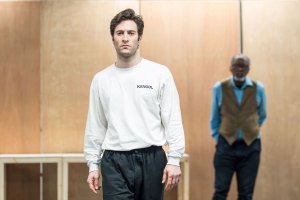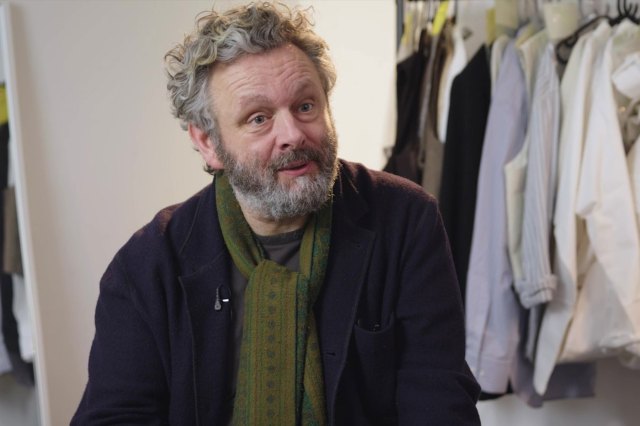Director Phillip Breen on True West and why Scotland should vote yes
‘I think we’re deeply suspicious of ideology in this country; it’s kind of vulgar to say you care about things’

© Tim Morozzo
What inspired you to bring True West to London?
When we did it in Glasgow Sam [Shepard] came over and really liked it, and he asked whether we wanted to transfer it to London. I said yes, but explained that we didn't have the rights. So he said "let me sort that out" and then on the following Monday morning I got a call from his agent in New York saying he had been knocked out by the production and was enabling it to come to London. That was obviously amazing, and he's been a great support to us ever since. And the Tricycle was the natural home for it down here – it's a wonderful fit for us.
Is it a play you've long admired?
Yes, it really is. I've wanted to do it for years and years and when Alex [Feans] and Eugene [O'Hare] said they wanted to do it, I knew they were perfect for it. So the three of us got together and went to a few theatres and fortunately the Citizens, which I love, said they wanted to do it. It's not just a great play, it's got an awful lot to say as well. I think it's about our obsession with authenticity and the struggle to be authentic in an age that seems almost unable, on some level, to be it.
I understand you played clips of David Lynch films in rehearsals?
Well there were a few things we looked at, one of which was Blue Velvet. It's my favourite film and I think True West is rolling down a similar groove. The opening section of Blue Velvet is kind of perfect, starting with the blue sky and the white picket fences and the film is a wonderful expression of a poetic reality about suburban living, both in England and America.
There has been a wave of American play revivals recently – why do you think this is?
What I love about American culture is that it's very direct, and it's not afraid of asking the big questions. I think we're deeply suspicious of ideology in this country; it's kind of vulgar to say you care about things. I think the reason we connect to these plays is because I don't see any sincerity in our public sphere in terms of debating big questions or talking about politics or art. I'm very aware of watching and hearing and reading airbrushed statements the whole time and I can't relate to it. I don't want to characterise a whole generation of playwrights or a theatrical culture or anything like that, but I'm constantly aware of people with big ideas in this country not having a voice. But big questions are kind of fashionable at the moment so maybe that's why we have an appetite for these plays.

One of the big issues currently is Scottish independence. You have argued passionately in favour of the 'Yes' campaign – why?
I've spent a lot of time in Scotland over the years. I love Scottish audiences. When I go up to Glasgow I feel like they are people I know, and theatre is a big part of the culture. I think a 'Yes' vote has the opportunity to be massive for us down here as well as for them up there. The 'No' campaign, led by the Westminster elite, seem genuinely bewildered that anyone would care about anything. As far as they're concerned, every issue of the day is sorted, we can just hand everything over to the private sector and that's going to be fine. But there are an awful lot of people that don't believe that and are afraid of that. Weirdly, maybe this is linked to why we're doing these American plays, because we've no other outlet for people who really want to have a genuine debate about progressive politics. Social mobility is moving backwards in this country. We need to have a political culture again, and a 'Yes' vote would be a big step towards that.
What are the implications of independence for the arts?
Broadly speaking, I think anytime there is a social or political change, artists gather round it and try, on some level, reflect it. So that, on an immediate level, is exciting. From a political point of view, what the Edinburgh Festivals have done for artists is absolutely uncountable and that's not going to stop after independence. Scotland is a very interesting place to make work and there's a very vibrant scene up there. The Citz for example is a powerhouse which has its own identity on the European stage. So that won't change – if anything it will strengthen after independence.
Won't creative partnerships, such as the one you've enjoyed with the Tricycle, become more difficult?
No. I don't think so. You can't stop venues from collaborating across borders. It's not stopped the Abbey theatre [in Dublin] from working with other EU countries, for example. Scotland and England already have separate arts councils. There may well be a few administrative hiccups but surely it's worth it to have something that the people have voted for.
Bringing us back to True West – what kind of evening do you hope people will have?
A completely unique one. And a funny one – they're going to laugh and it will be unlike anything they've ever seen. It's a little bit Lynch, a little bit Pinter. Sam has such a distinctive voice. It's true to the spirit of the play and I'm so happy Sam has backed us – we're already talking about ideas for next year. I think it's a really distinctive, original reading of a really good play.
Come on our hosted WhatsOnStage Outing to True West on 18 September and get your ticket, a FREE poster and access to our EXCLUSIVE post-show Q&A with the cast – all for £20.00












